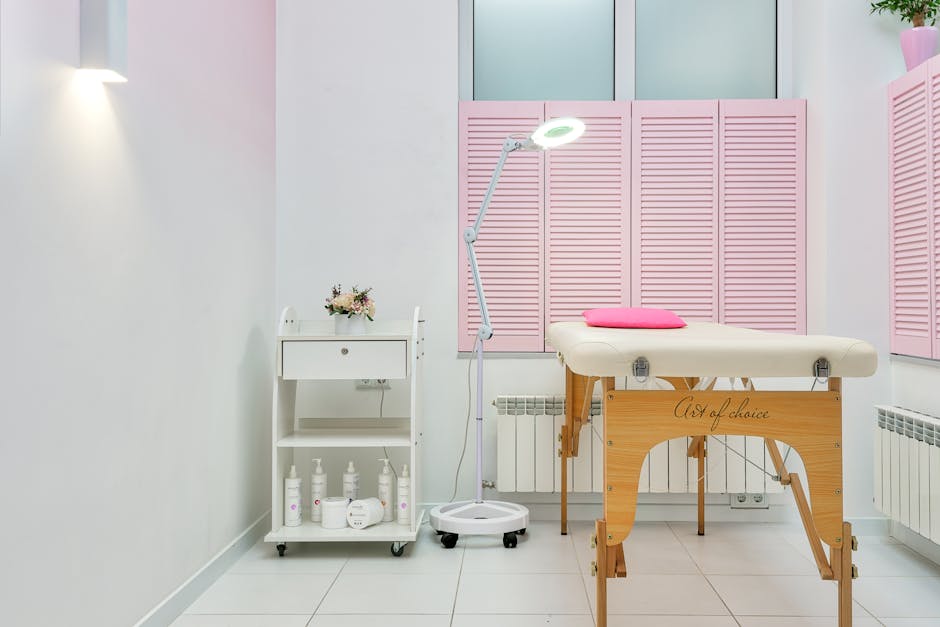
Can You ‘Cure’ Sensitivity? What Dermatology Reveals
If you’ve been struggling with persistent redness, burning, or irritation—despite using “gentle” skincare—it’s time to ask the hard question: Is there a true cure for sensitive skin, or are we destined to just manage symptoms? Let’s dive into what science and dermatology really say about healing sensitive skin for good.
Is There a Cure for Sensitive Skin?
The cure for sensitive skin lies in identifying the underlying cause, removing triggers, and restoring the skin barrier. While it can’t always be permanently “cured,” sensitive skin can be healed and managed long-term with targeted skincare and clinical treatment.
- Repairing the skin barrier is key to healing sensitive skin
- Avoiding irritants and allergens prevents flare-ups
- Topical treatments and moisturizers soothe inflammation
- Consistent use of calming ingredients supports resilience
Understanding Sensitive Skin
Sensitive skin isn’t a diagnosis—it’s a symptom. It often presents as itching, burning, stinging, or redness in response to stimuli like weather, products, or stress. For some, it’s a lifelong concern. For others, it arises due to age, hormonal shifts, or poor skin barrier health.

What Causes Sensitive Skin?
Common causes include:
- Compromised skin barrier: Often due to over-exfoliation, harsh cleansers, or environmental damage
- Genetic predisposition: Conditions like rosacea or eczema increase sensitivity
- Allergic or irritant reactions: Fragrances, preservatives, or alcohol in skincare
- Hormonal changes: Menopause or thyroid issues can trigger skin reactivity
Dermatology-Approved Treatment Options
Dermatologists emphasize strengthening the skin barrier as the foundation for treating sensitive skin. Medical-grade treatments may include:
- Prescription barrier-repair creams: Containing ceramides, niacinamide, or panthenol
- Topical corticosteroids: For short-term inflammation control (only under medical supervision)
- Phototherapy or laser: Reduces redness in rosacea-prone or inflamed skin
- Allergy patch testing: Identifies specific triggers to eliminate
Evidence-Based Home Routines That Heal Sensitive Skin
Incorporating a healing skincare routine at home is essential for long-term comfort. Follow these science-backed steps:
- Cleanse gently: Use fragrance-free, pH-balanced cleansers
- Moisturize consistently: Look for ceramide- and squalane-rich formulas
- Protect with SPF: Mineral-based sunscreens reduce UV-induced inflammation
- Minimize steps: Stick to a “skinimalist” routine to reduce reactivity

Products That Work: Ingredients to Embrace & Avoid
Dermatologists recommend identifying both supportive and harmful ingredients when selecting products to cure sensitive skin symptoms:
| Ingredients to Embrace | Ingredients to Avoid |
|---|---|
| Colloidal oatmeal, Centella Asiatica, Ceramides | Alcohol, Fragrance, Menthol, Essential oils |
| Niacinamide, Squalane, Panthenol, Allantoin | Sulfates, Physical exfoliants, Preservatives (e.g. parabens in some) |
Lifestyle & Environmental Triggers
Even the best skincare won’t work if daily habits worsen sensitivity. Ask yourself—could your home or habits be sabotaging your skin?
- Hard water: Consider a shower filter
- Over-cleansing or double-cleansing nightly
- Hot showers or heating pads near the face
- High-stress lifestyle increasing cortisol levels

Realistic Expectations: Does Sensitive Skin Go Away?
While you may not find a one-size-fits-all cure for sensitive skin, many people experience long-term relief through gentle, targeted care. Sensitivity often improves with age, barrier repair, and hormonal balance—but patience and prevention are key.
- Healing takes 4–12 weeks with the right routine
- Skin may relapse due to climate or stress
- Long-term commitment to maintenance is necessary
- Track triggers and adjust routines proactively
FAQs
Can you really cure sensitive skin?
In most cases, you can’t permanently “cure” sensitive skin, but you can significantly reduce symptoms and strengthen your skin’s resilience through proper care.
What’s the best treatment for sensitive skin?
The best treatment for sensitive skin focuses on barrier-repair ingredients, gentle hydration, and avoiding known irritants like fragrance, alcohol, and harsh exfoliants.
Does sensitive skin go away with age?
In some individuals, skin sensitivity lessens with hormonal stabilization or lifestyle changes, but others may experience it indefinitely. Consistency in care is key.
Which ingredients are best for healing sensitive skin?
Look for ceramides, niacinamide, squalane, panthenol, and oat extracts to help heal sensitive skin naturally and safely.
How do I know if my skincare is causing sensitivity?
If your skin stings, burns, turns red, or develops small bumps after using a product, discontinue immediately and simplify your routine with hypoallergenic basics.
Pillar Article: What Science Says About Allergic Treatment for Skin
Other Related Articles:
Explore More:



0 Comments